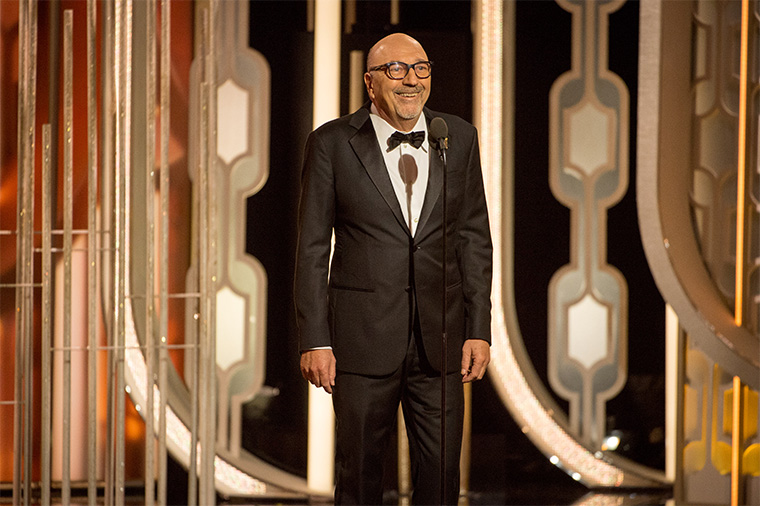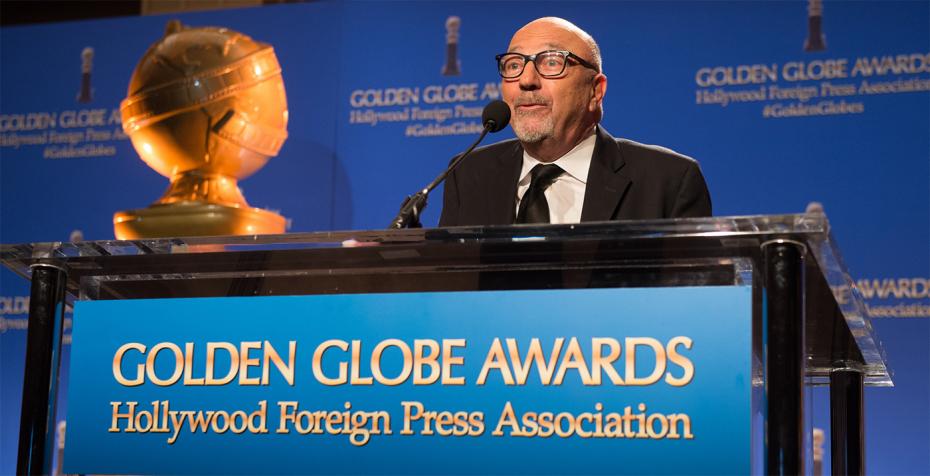Lorenzo Soria’s parents were Jews, urged – by the suffocating climate following the “Italian Racial Laws” – to embark on a diaspora to Argentina.
They settled down in Buenos Aires, where, in 1951, Lorenzo was born.
The boy grew up in a circle of Italians, until at the age of 11, he experienced the tragic loss of his father.
His mom, left to raise by herself Lorenzo and his sister, decided to follow suit some relatives and to go back to Milan, Italy.
Fast forward of several years and Soria graduated from Political Science. Then, he started covering economics and finance for L’Espresso, one of Italy’s foremost newsmagazine.
Lastly, when Lorenzo was thirty years old, he embarked on a voluntary diaspora to Los Angeles. Here, he has been helping to bring the Hollywood Foreign Press Association (HFPA) to new heights.

When did it start your adventure, working with the Hollywood Foreign Press Association? What are the main benefits for the journalists, who join the HFPA?
When I started as foreign correspondent from L.A., I mostly covered politics, technology, fashion and, in small part, entertainment. Eventually, the last turned into my main focus.
I joined the association in 1989, in my capacity as correspondent for L’Espresso and La Stampa. After spending several years in the board of directors, I became vice president and, then, president from 2003 to 2005.
Since last June, I’ve been serving again as president of the HFPA.
The association organizes around four hundred press conferences a year. Most of those take place here in L.A., but regular destinations are also New York, London, Berlin.
Our worldwide leverage, derived from producing the Golden Globe Awards, enables us to obtain the key interviews for our media outlets.
What has been your role in putting together the annual ceremony of the Golden Globe Awards, telecasted across about 170 worldwide countries?
For last sixteen years, I’ve been involved in the executive production of the event, by managing its logistics and security.
My chief role has been to assure that all the attendees, nominees and celebrities, present at the evening, might feel safe, by coordinating with the local police and FBI.
I’ve also been handling the organizational set-up of the passes, the parking spaces and the traffic circulation.
In other words, I’ve been overseeing that everything could happen smoothly and on time.
Besides, there are about five distinct after parties, whom we don’t manage directly, but we still have to deal with.
In that respect, I’ve been taking care of the credentials for about four thousand people, among the production crew, the media, the publicists, and Beverly Hilton’s employees.
Imagine having a week to set up a “citadel” – within a regularly operational hotel – to be presented in the worldwide spotlight. The ceremony, held on Sunday around mid-January, starts at 2 pm with the red carpet and ends at 8 pm, as far as TV coverage.
At midnight, everything is brought to an end. Next morning, at 8 am, the Beverly Hilton hotel resumes its regular operations, as if nothing happened.
What do you aim to achieve during your presidency at the HFPA?
I’m saddened by the fact that, still after so many years of activity, people only see our association, as those who award the Golden Globes.
First and foremost, we are an organization, which supports journalists from all over the world. Our role is essential, especially in the challenging phase, currently faced by the press.
We are a non-profit association, which derives substantial revenues, from the licensing fees for NBC’s broadcasting rights. As a consequence, every year, we donate several millions of dollars to schools and universities, both as funds to upgrade labs and equipment, and as scholarships.
Another primary focus is to contribute to the preservation and restoration of films, from the 20’s, 30’s, 40’s and 50’s, whose survival is constantly in danger.
A month apart from each other, two of the most extraordinary Italian personalities, Ettore Scola and Umberto Eco, passed away. Did you have the chance to meet them? How influential were them in your intellectual growth?
I’ve never had the honor to meet Scola in person, but he has been very influential in the cultural formation of my entire generation.
In regard to Eco, in the early stage of my journalistic career, I’ve had the privilege of meeting him in Milan, at L’Espresso’s newsroom. I was inspired and enlightened through the conversations with such a brilliant man.
In conclusion, do you keep in touch with the local Italian-American community?
I am a regular at the events, hosted by the Italian Cultural Institute of L.A. and I’ve had contacts with the local Italian authorities.
Whenever I happen to be here on June 2, I attend to the official celebrations of the Republic Day.
Lastly, I still feel deeply bonded to Italy and I go back there, as often as I can.





























